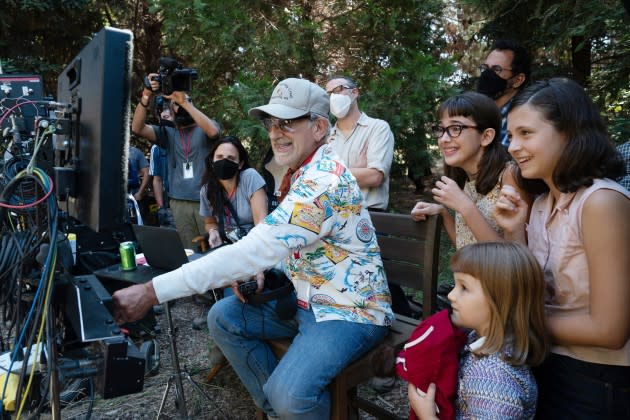In ‘All Quiet on the Western Front’ and ‘Fabelmans,’ Screenwriting Teamwork Makes the Scene Work

Collaboration is vital to filmmaking — no one can make one completely alone. For many of 2022’s screenplay nominees, that process began on the page with a team of individuals whose efforts completed and complemented one another’s to ensure that the story being told was as thoughtful, fully realized and emotionally evocative as possible. But even though “The Fabelmans” cowriter Tony Kushner had previously partnered with Steven Spielberg three times, starting with 2005’s “Munich,” the Pulitzer Prize and Tony Award-winning playwright says he was initially unsure how well the duo would work together as co-authors as opposed to handing over a finished script Spielberg would bring to life on the screen.
“I had never co-authored anything with anyone, so I was very nervous about how that was going to feel,” Kusher tells Variety. “But we’ve worked so closely on every script I’ve done for him that this felt very different in some ways, but also very familiar.”
More from Variety
The foundation of their work was a series of interviews he did with Spielberg about his family and his upbringing, the notes from which Kushner used to write out a “novella” version of the story. “I had his permission to reorganize them and to make some changes, but I wanted them to stay recognizable to him,” Kushner says. “I think he needed somebody to step in and provide a degree of objective distance that helped create a space for fiction and imagination to enter in and interact with memory.”
Given how personal the story of “The Fabelmans” was to Spielberg, Kushner indulged his authorial voice slightly less strongly on the film than in the past, but always with the confidence that his collaborator would deliver something magical and deeply felt. “He’s wonderfully respectful and he listens to me and he’ll let me make a terrible nuisance of myself. But ultimately he has a very, very strong sense of what feels right for the movie that he’s making. And I’ve learned over the years, finally, you have to kind of surrender to that because it is his film. And also I think Stephen is a genius,” he adds. “Even when I don’t win an argument, I’m really blown away by the results.”
For adapted screenplay contender “All Quiet on the Western Front,” Ian Stokell says that his and cowriter Lesley Paterson’s first collaborator on the mesmerizing WWI film was author Erich Maria Remarque, who wrote the eponymous novel upon which it’s based. “Our first task in writing the original script was to choose which themes in the book to focus on, while maintaining the all-important anti-war sentiments,” Stokell says.
“The novel itself is almost like excerpts of a diary and we felt like it needed some greater context for modern audience,” explains Paterson. “So our first stab at the adaptation was really understanding those scenes and what was important in the novel and finding a cinematic through line that could give it a strong sense of direction.”
Stokell says that on both the page and the screen, director Edward Berger’s vision perfectly complemented their creativity. “Lesley and I know that, for any film to truly succeed, you need the director to make the film their own, changing the script to match their vision,” he says.
“To see all those layers come together, you then appreciate how you have to leave room for those other creators to come and put their stamp on it,” Paterson says. “So when you’ve got someone as good as Edward and as good as the team that we had on board, you have to give them room. And what they came up with blew us out of the water.”
Best of Variety
Sign up for Variety’s Newsletter. For the latest news, follow us on Facebook, Twitter, and Instagram.
